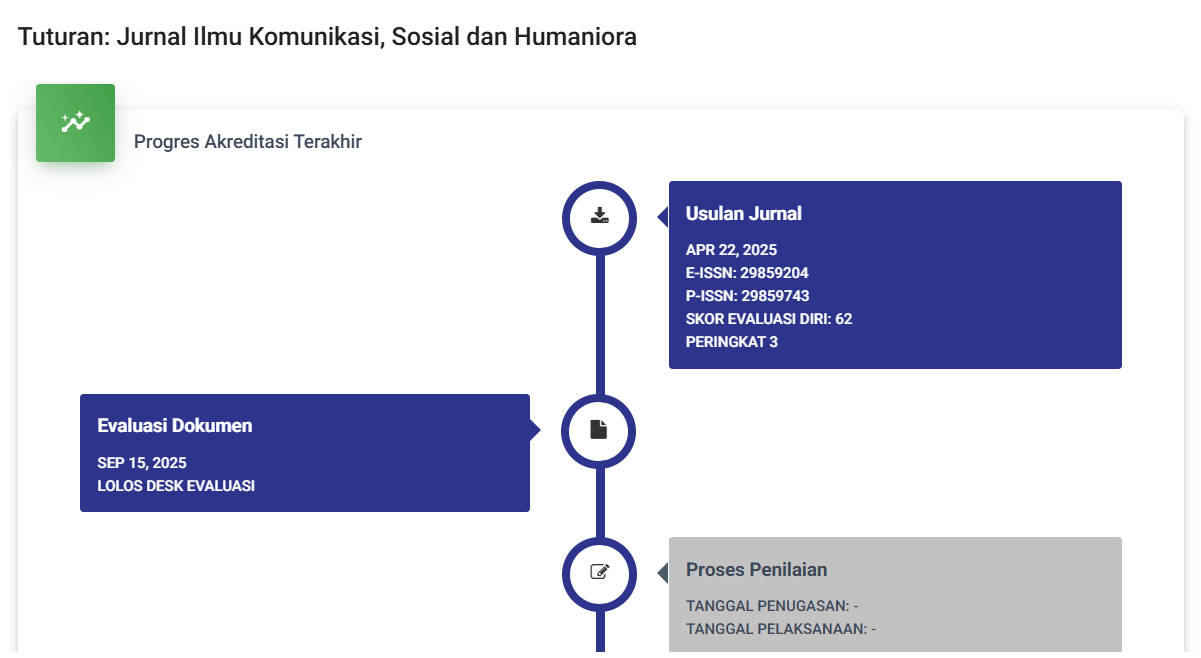Faktor-Faktor Pendorong Prestasi Belajar Peserta Didik Di Makassar
DOI:
https://doi.org/10.47861/tuturan.v2i2.1072Keywords:
Learning Achievement, Students, MakassarAbstract
Making the nation's life intelligent is one of the ideals of the Indonesian nation as stated in the preamble to the 1945 Constitution. One way to achieve this ideal is through education. The Indonesian government itself has carried out many programs so that all the nation's children can receive a good education. Starting from the 9 year compulsory education program, scholarships for needy students, and many other programs. Education cannot be separated from the learning process. Learning is a process to increase human knowledge and increase one's self-value so that one can survive in everyday life. In the world of education, increasing human knowledge and self-value is often associated with the academic achievements achieved by the student. Measuring academic achievement is very important because it aims to evaluate the development of individual abilities in the educational process. The academic achievements achieved are also a measure of the success of an educational institution in educating its students.
References
Analisis Data Kualitatif: Sebuah Tinjauan Teori & Praktik. (2019). Sekolah Tinggi Theologia Jaffray.
Arfani, L. (2018). Mengurai hakikat pendidikan, belajar dan pembelajaran. Pelita Bangsa Pelestari Pancasila, 11(2).
Arini, N. K. S., & Fakhrurrozi, M. (2008). Pengaruh tingkat intelegensi dan motivasi belajar terhadap prestasi akademik siswa kelas II SMA negeri 99 Jakarta. Unpublished Laporan Penelitian. Jakarta: Universitas Gunadarma.
Faizah, S. N. (2017). Hakikat belajar dan pembelajaran. At-Thullab: Jurnal Pendidikan Guru Madrasah Ibtidaiyah, 1(2), 175-185.
Huru, Y. D. (2022). Penerapan metode diskusi kelompok pada pelajaran sosiologi untuk meningkatkan prestasi belajar siswa SMA Negeri 1 Rote Barat Laut. e-Jurnal Mitra Pendidikan, 6(11), 689.
Maesaroh, S. (2016). Peranan metode pembelajaran terhadap minat dan prestasi belajar pendidikan agama Islam. Jurnal Kependidikan, 1(1), 150–168. https://doi.org/10.24090/jk.v1i1.536
Nidawati, N. (2013). Belajar dalam perspektif psikologi dan agama. PIONIR: Jurnal Pendidikan, 4(1).
S., R. C. (2010). Faktor-faktor yang mempengaruhi prestasi belajar kewirausahaan siswa kelas XI SMK N I Punggelan Banjarnegara. [Skripsi, Universitas Negeri Semarang]. UNNES Repository.
Salsabila, A., & Puspitasari, P. (2020). Faktor-faktor yang mempengaruhi prestasi belajar siswa sekolah dasar. Pandawa, 2(2), 278-288.
Siregar, I. K. (2018). Kecerdasan emosional dan hasil belajar siswa. Kumpulan Jurnal Dosen Universitas Muhammadiyah Sumatera Utara.
Sugiyono. (2013). Metode Penelitian Kuantitatif, Kualitatif, dan R&D. ALFABETA.
Syafi'i, A., Marfiyanto, T., & Rodiyah, S. K. (2018). Studi tentang prestasi belajar siswa dalam berbagai aspek dan faktor yang mempengaruhi. Jurnal Komunikasi Pendidikan, 2(2), 115-123. https://doi.org/10.32585/jkp.v2i2.114
Uceo. (2022, September 27). Metode pengumpulan data dalam penelitian. Informatika Universitas Ciputra. Retrieved April 18, 2023, from https://informatika.uc.ac.id/2016/02/2016-2-18-metode-pengumpulan-data-dalam-penelitian/
Downloads
Published
How to Cite
Issue
Section
License
Copyright (c) 2024 TUTURAN: Jurnal Ilmu Komunikasi, Sosial dan Humaniora

This work is licensed under a Creative Commons Attribution 4.0 International License.








